SavitriNama- Savitribai Phule ka Samagra Sahityakarm
- Publisher: Forward press
- Binding: Paperback
- Language: Hindi
₹195.00 /-
Order SavitriNama- Savitribai Phule ka Samagra Sahityakarm On WhatsApp
Description
SavitriNama- Savitribai Phule ka Samagra Sahityakarm
SavitriNama: Savitribai Phule ka Samagra Sahityakarm by Kanak Lata is a profound exploration of the literary and social contributions of Savitribai Phule, one of India’s most revered social reformers, educators, and feminists. This book meticulously documents her complete body of work, shedding light on her pivotal role in championing women’s rights, education, and social justice during the 19th century.
Kanak Lata delves into Savitribai’s revolutionary writings, including her poetry and speeches, which not only addressed the struggles of women and marginalized communities but also inspired movements for equality and empowerment. Through this compilation, the book paints a vivid picture of Savitribai’s unwavering commitment to challenging oppressive structures of caste, patriarchy, and ignorance.
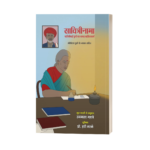 The text also contextualizes her literary works within the socio-political landscape of her time, providing readers with a deeper understanding of her motivations and the impact of her activism. SavitriNama serves as both a tribute and an essential resource for anyone interested in feminist literature, Bahujan history, and the transformative power of education and resistance.
The text also contextualizes her literary works within the socio-political landscape of her time, providing readers with a deeper understanding of her motivations and the impact of her activism. SavitriNama serves as both a tribute and an essential resource for anyone interested in feminist literature, Bahujan history, and the transformative power of education and resistance.
Introducing the Savitrinama Book , a captivating tribute to the remarkable life and achievements of one of India’s most influential social reformers. This book delves deep into the inspiring journey of Savitribai Phule, who defied societal norms and dedicated her life to the empowerment of women and the upliftment of the marginalized.
Chapter 1: Early Life and Education
In this chapter, you will discover the humble beginnings of Savitribai Phule and her thirst for knowledge. From overcoming gender biases to pursuing education, her determination to break barriers sets the stage for her extraordinary contributions to society.
Chapter 2: Women’s Education Movement
This chapter explores Savitribai Phule’s pioneering efforts in establishing schools for girls and women. Her relentless advocacy for education as a means of social transformation laid the foundation for the empowerment of countless women, challenging the prevailing norms of her time.
Chapter 3: Social Reforms and Activism
In this chapter, you will delve into Savitribai Phule’s tireless work in fighting against social evils such as caste discrimination, child marriage, and widowhood practices. Her activism and progressive ideas continue to inspire generations, making her an icon of social reform.
With its insightful narrative and captivating storytelling, the Savitrinama Book sheds light on the life and legacy of this extraordinary woman. It serves as a testament to her unwavering spirit and her unwavering commitment to equality and justice.
Whether you are a history enthusiast, a student, or someone seeking inspiration, this book is a must-read. Join us on this enlightening journey as we celebrate the indomitable spirit of Savitribai Phule and her invaluable contributions to the progress of our society.
SavitriNama: Savitribai Phule ka Samagra Sahityakarm by Kanak Lata is an exceptional piece of work that serves as a comprehensive tribute to the life, writings, and social contributions of Savitribai Phule. Known as one of the earliest feminists in Indian history, Savitribai Phule’s work laid the foundation for movements advocating gender equality and social justice in the country. Kanak Lata’s book meticulously compiles and analyzes Savitribai’s complete literary contributions, offering readers an invaluable insight into her revolutionary ideas and enduring legacy.
country. Kanak Lata’s book meticulously compiles and analyzes Savitribai’s complete literary contributions, offering readers an invaluable insight into her revolutionary ideas and enduring legacy.
Historical Context
Savitribai Phule lived during the 19th century in colonial India, a period marked by rigid caste hierarchies, systemic patriarchy, and widespread social inequality. She, alongside her husband Jyotirao Phule, played a pivotal role in challenging these oppressive structures. Together, they worked tirelessly to uplift women, Dalits, and other marginalized communities, primarily through the medium of education. Savitribai is celebrated as India’s first female teacher, and her efforts to establish schools for girls and the underprivileged are seen as groundbreaking.
Kanak Lata’s SavitriNama situates Savitribai’s literary works within this socio-political landscape, highlighting how her writings were not merely literary endeavors but powerful tools for social change. Savitribai’s poetry, essays, and speeches are infused with her commitment to justice, equality, and education, making her a trailblazer of reformist literature in India.
Literary Contributions
One of the book’s central themes is the examination of Savitribai’s literary contributions. Her works, primarily in Marathi, include poetry that speaks of liberation, the importance of education, and the struggles of women and oppressed communities. Kanak Lata’s detailed analysis of Savitribai’s poetry reveals the depth of her understanding of societal issues and her ability to articulate the pain and aspirations of the marginalized.
Poetry as a Weapon of Resistance
Savitribai’s poetry is one of the most remarkable aspects of her literary output. She used poetry as a means to inspire, educate, and empower. Her verses often addressed:
- The Importance of Education: Savitribai believed education was the key to liberation. Her poetry underscores the transformative power of learning, especially for women and the oppressed.
- Caste and Gender Discrimination: Through her writing, she condemned the caste system and patriarchal practices that subjugated women and Dalits. Her poetry called for unity and resistance against these injustices.
- Empowerment of Women: Savitribai’s work celebrated the potential of women as leaders, thinkers, and change-makers. Her verses encouraged women to stand up for their rights and break free from societal constraints.
Kanak Lata emphasizes how Savitribai’s poetry was not merely a reflection of her thoughts but a call to action. Her words resonated with the struggles of her time and continue to inspire movements for equality and justice.
Social Contributions Through Literature
Beyond her poetry, Savitribai’s other writings, including essays and speeches, reveal her deep commitment to societal t ransformation. SavitriNama explores how these works reflect her visionary ideas and practical approaches to addressing social issues. Some key themes in her non-poetic writings include:
ransformation. SavitriNama explores how these works reflect her visionary ideas and practical approaches to addressing social issues. Some key themes in her non-poetic writings include:
- The Role of Education in Social Change Savitribai viewed education as a fundamental right and a means to dismantle oppressive systems. Her essays articulate her belief in the democratization of knowledge and her efforts to make education accessible to all, particularly girls and marginalized communities.
- Feminism and Women’s Rights As a pioneer of feminism in India, Savitribai’s writings advocate for women’s empowerment. She addressed issues such as child marriage, widow remarriage, and the lack of opportunities for women, urging society to embrace progressive change.
- Critique of the Caste System Savitribai’s works are a scathing critique of the caste system, which she saw as a tool of oppression and division. Her writings call for equality and solidarity among all sections of society, emphasizing the need to abolish caste-based discrimination.
- Empathy and Social Service Savitribai’s compassion for the downtrodden is evident in her writings. She often spoke of the importance of empathy, urging individuals to work for the betterment of society. Her establishment of “Balhatya Pratibandhak Griha” (a home to prevent infanticide) is a testament to her commitment to social service.
Intersection of Life and Literature
Kanak Lata’s SavitriNama beautifully weaves Savitribai’s literary works with her life story, showing how her writings were deeply influenced by her lived experiences. For instance, her struggle to educate girls and Dalits amidst societal opposition finds a strong voice in her poetry. Similarly, her personal experiences of caste and gender discrimination inform her critique of these systems in her essays and speeches.
Savitribai’s writings also reflect her unwavering support for her husband Jyotirao Phule’s reformist vision. Together, they envisioned a society free from caste and gender-based oppression, and her literary contributions played a crucial role in spreading this vision.
Legacy and Relevance
SavitriNama highlights the enduring relevance of Savitribai Phule’s work. Her writings continue to inspire movements for social justice, gender equality, and educational reform in India and beyond. Kanak Lata’s book serves as a reminder of the transformative power of literature in shaping society.
In contemporary times, Savitribai’s emphasis on education as a tool for empowerment resonates strongly. Her fight for gender equality and her critique of the caste system remain pertinent in addressing the challenges of modern society. By preserving and analyzing her literary legacy, SavitriNama ensures that her voice continues to be heard and her message continues to inspire.
Kanak Lata’s Contribution
Kanak Lata’s meticulous research and eloquent writing make SavitriNama a significant contribution to the study of Indian literature and social history. Her analysis not only sheds light on Savitribai’s literary genius but also situates her work within the broader context of 19th-century reform movements. The book is an essential resource for scholars, activists, and anyone interested in understanding the intersections of literature, feminism, and social justice.
The Role of Education in Social Change
Education has long been regarded as a cornerstone of social transformation. It not only empowers individuals with knowledge and skills but also serves as a catalyst for broader societal shifts, fostering equality, justice, and progress. Across history and cultures, education has been instrumental in dismantling oppressive systems, bridging socio-economic divides, and inspiring movements for change. This article explores the multifaceted role of education in driving social change, examining its impact on individual empowerment, societal structures, and the broader world.
change. This article explores the multifaceted role of education in driving social change, examining its impact on individual empowerment, societal structures, and the broader world.
1. Empowering Individuals for Change
Knowledge and Awareness
Education provides individuals with the tools to critically analyze their environment and understand their rights and responsibilities. It fosters awareness of social, political, and economic systems, enabling people to identify injustices and take informed actions to address them. For example, literacy campaigns have empowered marginalized communities to participate in governance and demand accountability.
Economic Independence
Education enhances employability and income potential, breaking the cycle of poverty. By equipping individuals with technical skills and professional knowledge, it enables them to achieve economic independence, which is a critical factor in challenging societal inequalities.
Confidence and Agency
An educated individual is often more confident and capable of asserting their rights. Education instills a sense of self-worth and agency, encouraging people to challenge discriminatory practices and advocate for their interests and the interests of their communities.
2. Challenging Social Inequalities
Gender Equality
Education has been pivotal in advancing gender equality. Access to education for women and girls has challenged patriarchal norms, reduced child marriage rates, and improved maternal and child health. Educated women are more likely to participate in the workforce and contribute to decision-making processes, both within families and in broader societal contexts.
Caste and Class Barriers
In societies with entrenched caste or class systems, education serves as a powerful equalizer. By providing opportunities for upward mobility, it reduces the social and economic disparities that perpetuate systemic oppression. Initiatives like affirmative action in education have played a significant role in empowering historically marginalized groups.
Reducing Discrimination
Education fosters empathy and understanding, encouraging individuals to embrace diversity and reject prejudice. Schools and universities, as melting pots of different cultures and perspectives, play a crucial role in breaking down stereotypes and promoting social cohesion.
3. Transforming Societal Structures
Political Awareness and Participation
Educated societies are more likely to engage in democratic processes, demand accountability from leaders, and advocate for policies that promote social welfare. Education nurtures critical thinking and informed citizenship, which are essential for the functioning of healthy democracies.
Advocacy and Activism
Many social reform movements have been led by educated individuals who used their knowledge to challenge injustices and mobilize others. Figures like Nelson Mandela, Martin Luther King Jr., and Savitribai Phule demonstrate how education equips leaders with the vision and tools to enact systemic change.
Institutional Reform
Education contributes to the evolution of institutions by fostering innovation and progressive thinking. It encourages the adoption of policies and practices that are inclusive, equitable, and aligned with the values of justice and human rights.
4. Catalyzing Economic Development
Workforce Development
A well-educated workforce drives economic growth by enhancing productivity, fostering innovation, and attracting investment. Education systems aligned with market needs ensure that individuals are equipped with the skills required in a dynamic global economy.
Reducing Economic Inequality
Access to quality education reduces economic disparities by leveling the playing field. It ensures that individuals from disadvantaged backgrounds have the opportunity to compete and succeed, thereby promoting equitable economic development.
Social Mobility
Education is a key driver of social mobility, enabling individuals to transcend socio-economic barriers and achieve a better quality of life. By breaking intergenerational cycles of poverty, it contributes to long-term social stability.
5. Promoting Global Perspectives and Unity
Understanding Global Challenges
In an interconnected world, education plays a vital role in fostering awareness of global issues such as climate change, human rights, and public health. It encourages individuals to think beyond local and national boundaries, cultivating a sense of global citizenship.
Building Bridges Across Cultures
Education promotes cross-cultural understanding and dialogue, reducing the likelihood of conflict and fostering international cooperation. Programs like student exchanges and global education initiatives help build bridges between diverse communities.
Shared Values and Goals
By promoting universal values such as equality, freedom, and sustainability, education unites people around common goals. It provides a platform for collective action to address global challenges and build a more inclusive and peaceful world.
6. Innovations and Future Directions
Technology in Education
The integration of technology in education has revolutionized access and delivery. Online learning platforms, virtual classrooms, and educational apps have democratized knowledge, reaching underserved populations and remote areas.
Inclusive Education
Efforts to make education inclusive—addressing the needs of differently-abled individuals and marginalized groups—are crucial for fostering equality. Policies that ensure access to quality education for all strengthen social cohesion and justice.
Lifelong Learning
In a rapidly changing world, the concept of lifelong learning has gained importance. Continuous education helps individuals adapt to new challenges and opportunities, ensuring that societies remain resilient and innovative.
Challenges to Education as a Tool for Social Change
Access and Inequality
Despite progress, disparities in access to education persist, particularly in developing countries. Factors such as poverty, gender discrimination, and lack of infrastructure hinder efforts to universalize education.
Quality of Education
 Ensuring the quality of education is as important as ensuring access. Poorly trained teachers, outdated curricula, and inadequate resources undermine the transformative potential of education.
Ensuring the quality of education is as important as ensuring access. Poorly trained teachers, outdated curricula, and inadequate resources undermine the transformative potential of education.
Political and Cultural Resistance
Efforts to use education as a tool for social change often face resistance from entrenched interests. Socio-cultural norms, political ideologies, and economic interests can act as barriers to progressive educational reforms.
Conclusion
Education is one of the most powerful instruments for social change, capable of transforming individuals, communities, and societies. By empowering people with knowledge, fostering critical thinking, and promoting values of equality and justice, it serves as a foundation for progress and innovation. However, realizing the full potential of education requires addressing challenges related to access, quality, and inclusivity. As we navigate the complexities of the modern world, investing in education remains essential for building a more equitable, sustainable, and harmonious future.
Conclusion
SavitriNama: Savitribai Phule ka Samagra Sahityakarm is more than just a book; it is a celebration of the life and legacy of one of India’s most inspiring figures. Through her writings, Savitribai Phule challenged societal norms, inspired generations, and laid the groundwork for a more just and equitable society. Kanak Lata’s compilation and analysis of her works provide an invaluable resource for understanding her contributions and their continued relevance.
Savitribai’s story and her literary output serve as a powerful reminder of the role of education, empathy, and resistance in creating social change. SavitriNama is a must-read for anyone seeking to understand the transformative potential of literature and the indomitable spirit of one of India’s greatest reformers.
सावित्रीबाई फुले का जीवन संघर्ष,
savitribai phule books,
savitribai phule books,
सावित्रीबाई फुले,
savitribai,

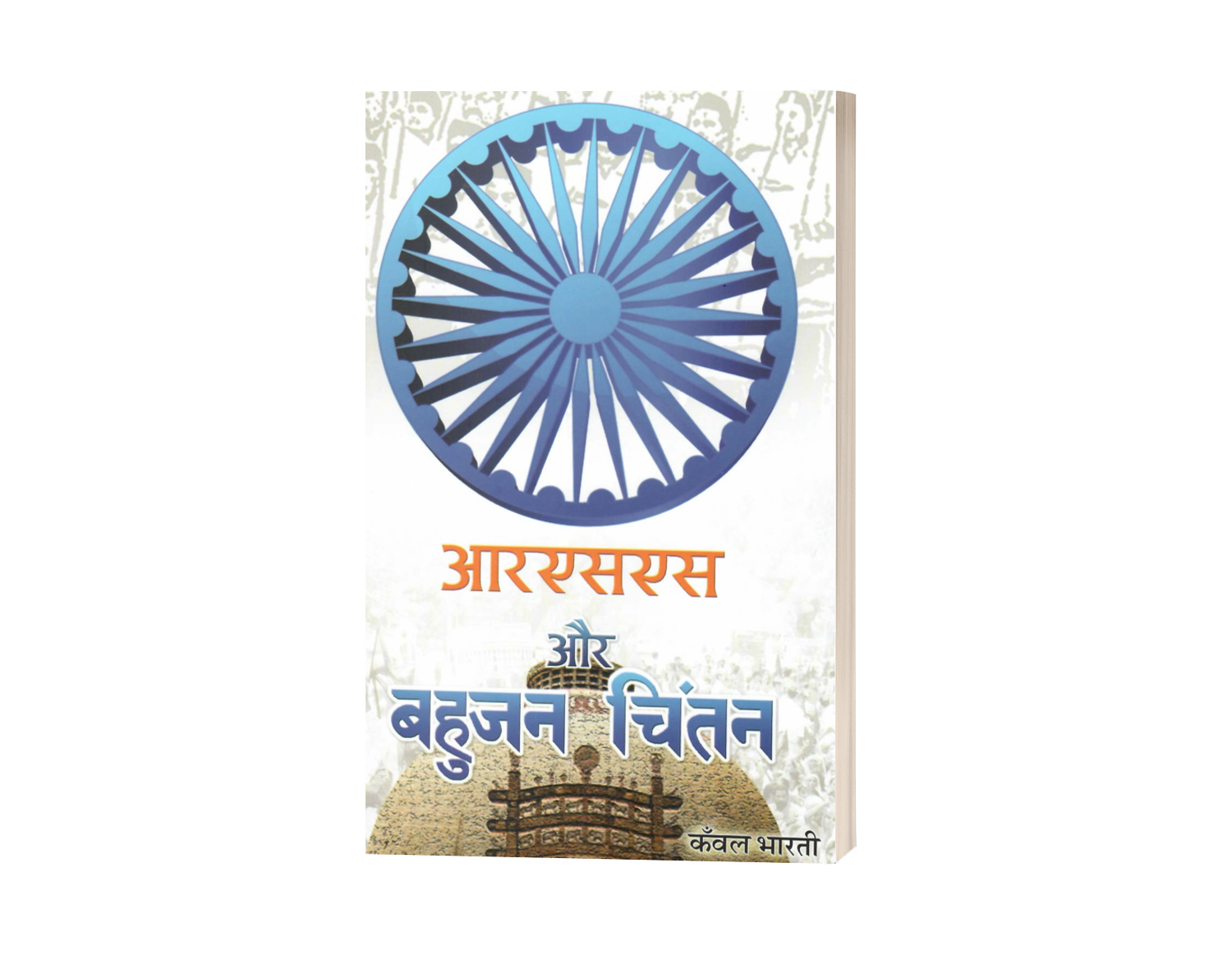

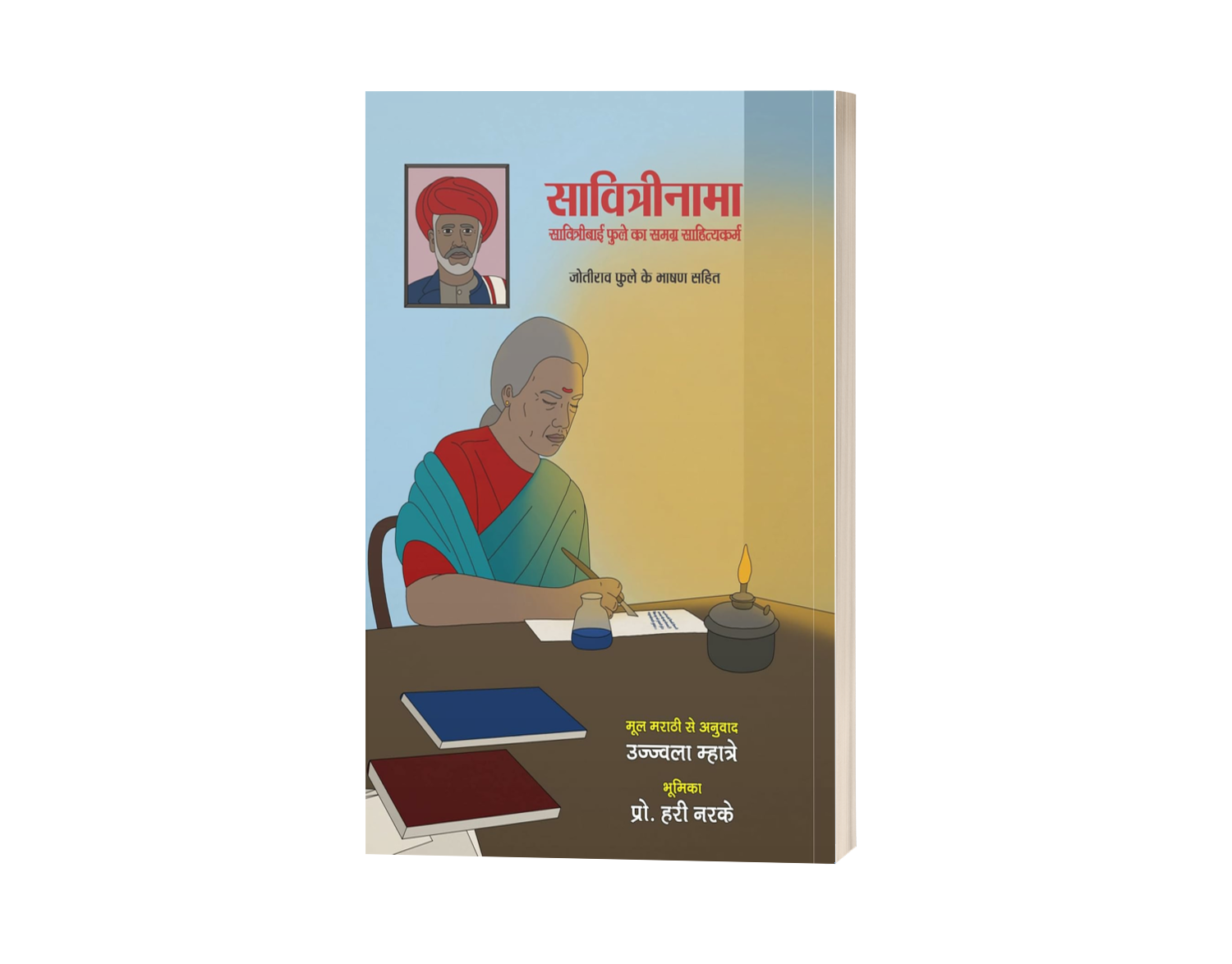

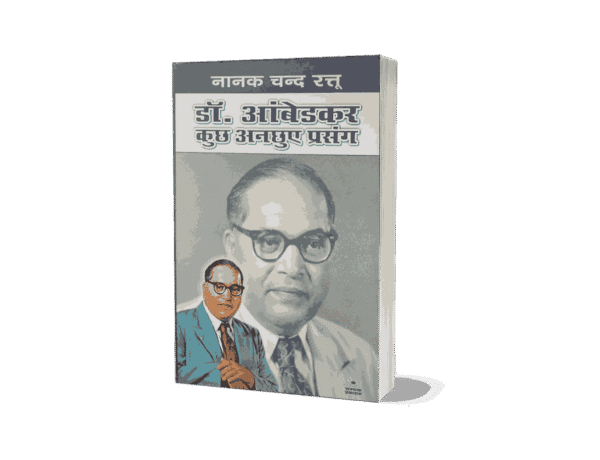
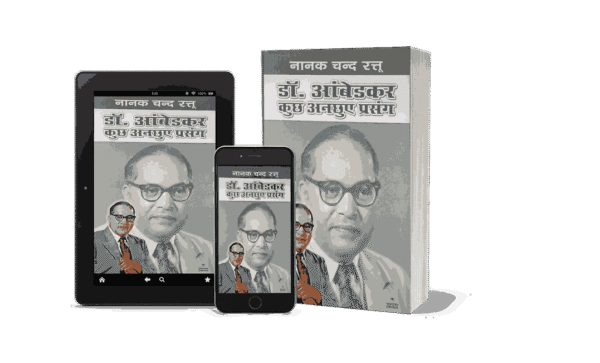
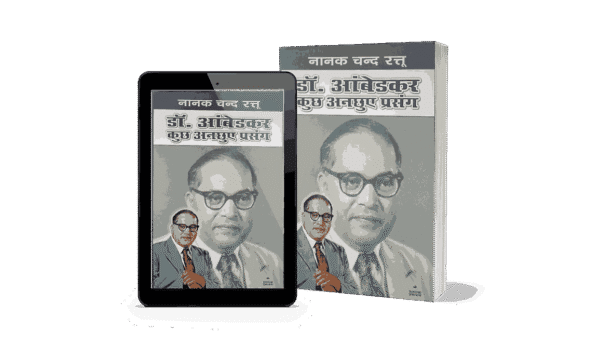
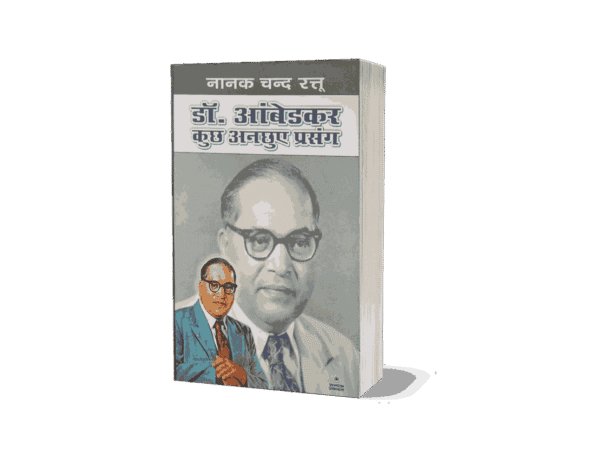
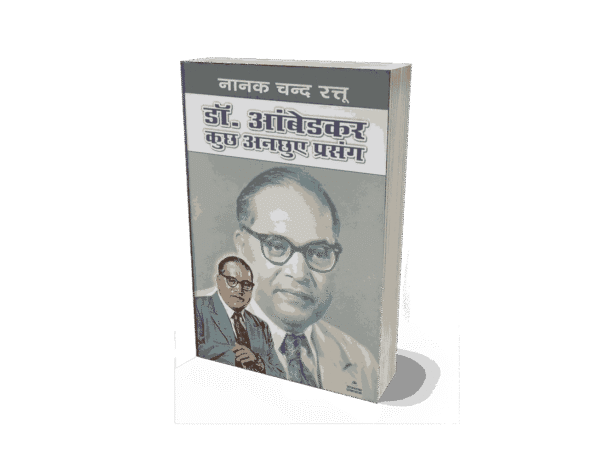

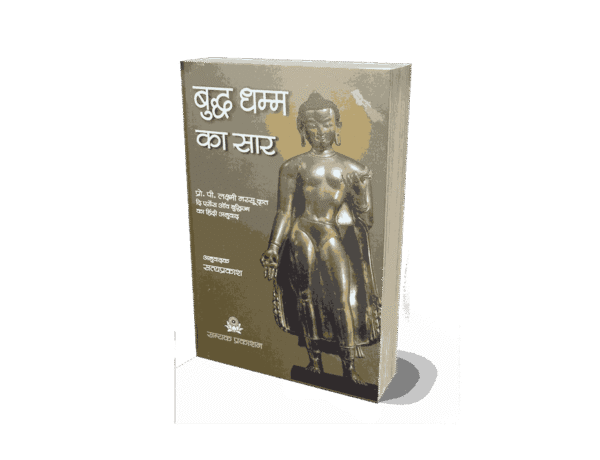
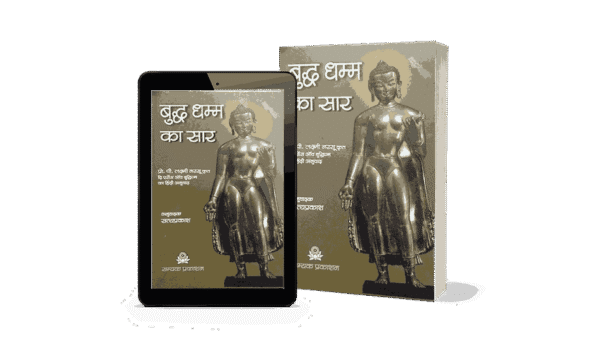
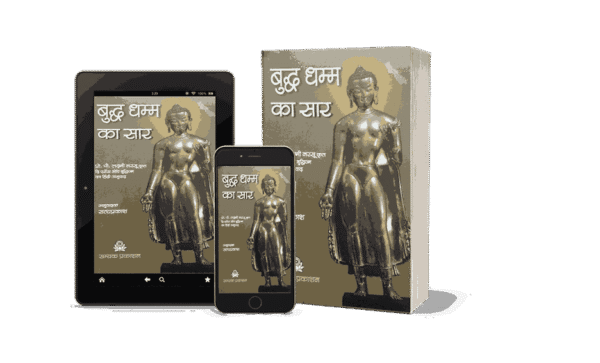
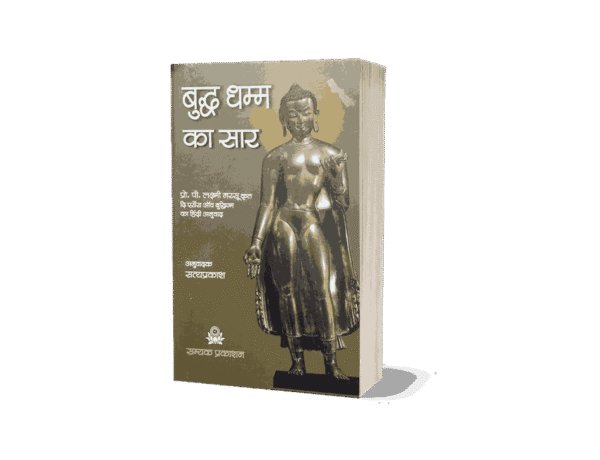
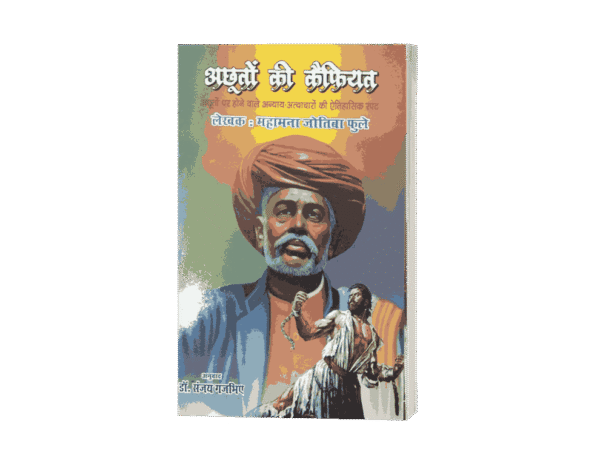

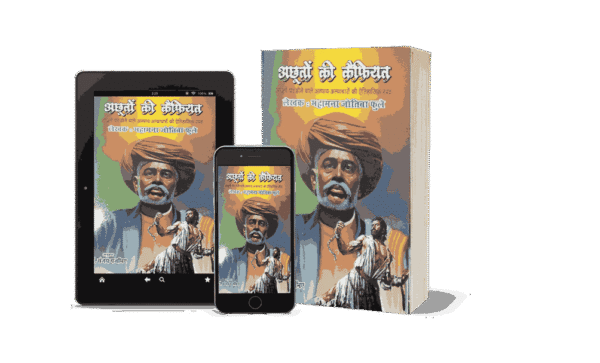
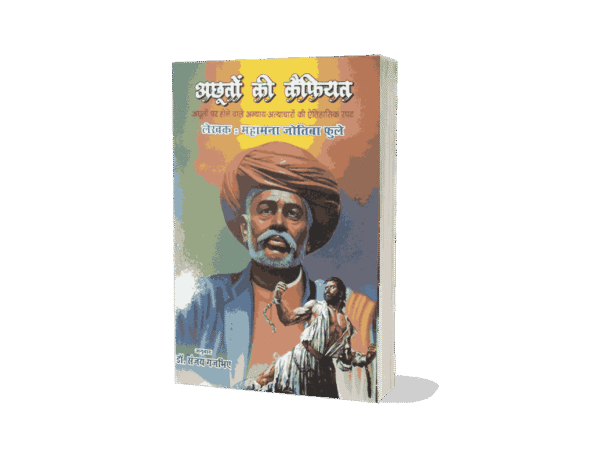
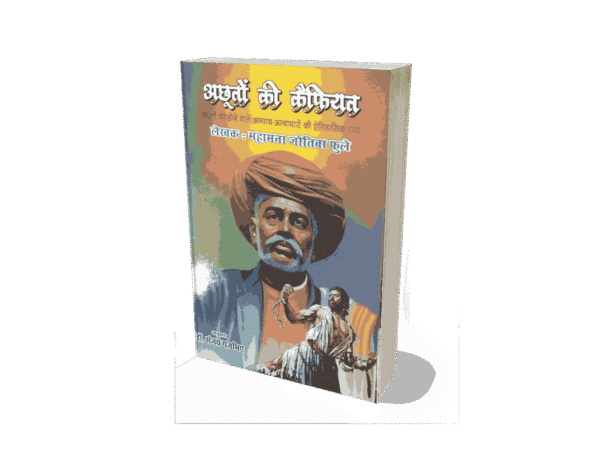
Reviews
There are no reviews yet.